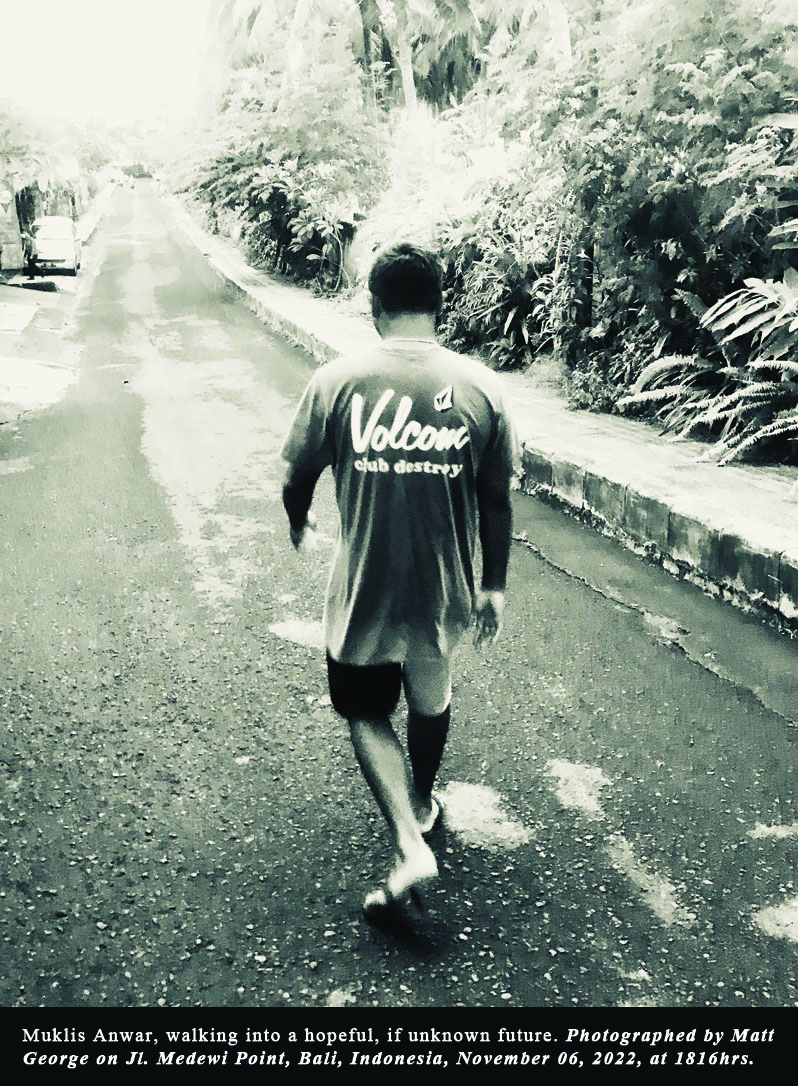TEAM PLAYERS:
TIME WELL SPENT WITH THE ISLAND BREWING TEAM

Because at sunset, after that first cold gulp after a long day of surfing with friends, the history of beer feels as important to surfing as the waves themselves. Ok, maybe not that important, but it’s undeniable that the stuff is entwined with the history of surfing. And human civilization when you really think about it. Some anthropologists believe that man moved away from a hunter–gatherer existence to a settled agriculture-based existence largely to grow enough grain to brew large amounts of beer. This appears to be unproven to non-drinkers, but the thought that beer would have been a powerful motivation to Neolithic humans would be no surprise. Virtually the entire animal kingdom, from insects to elephants, from fruit bats to monkeys, shows a clear predilection for the consumption of booze. It is reasonable to believe that we and other animals evolved according to advantages alcoholic beverages can confer. Fruit, when ripe, gives off an alluring scent that tells animals and humans that it is full of sugar and ready to eat. Ripe fruit can become quite alcoholic when natural yeasts begin to consume the sugars. Animals get the benefit of the food value of the fruit, but undoubtedly also find a value in the physiological effects of consuming alcohol or they wouldn’t do it. Just like humans. One of the great turning points for ancient humanity was the discovery of a method by which sugar could actually be created and fermented into alcohol in the absence of honey or fruit. This technique was the start of what we now call brewing. Thank heavens.

As best as man is able to determine, brewing emerged more than 5,000 years ago in the grasslands of southern Babylonia, between the Tigris and Euphrates Rivers. Rich alluvial soils supported wild grain plants, and the people there gathered them for food and to make beer. How was the discovery made? Grain left out in the rain will sprout, starting the malting process and developing enzymes inside the seeds. Someone coming upon a sprouting grain store probably went to make bread out of the grain before all of the nutritious starch was lost to the growing plants. Upon heating, the starches, now full of enzymes, liquefied into sugars. And once people had sugars, they knew what to do with them and Oktoberfests and the like were born.

So then the Sumerians settled upon the plains, creating a civilization, the world’s first, in Lower Mesopotamia. They began to grow the grains, making them into a form of bread called bappir. In the oldest written recipe known to archeologists, they praised the goddess Ninkasi, whose name means “lady who fills the mouth.” Brewer to the gods, Ninkasi taught mankind to make beer too, which they called kas. In a hymn to the goddess, they described her as “the one who waters the malt set on the ground … you are the one who bakes the bappir-malt in the great oven…. You are the one who soaks the malt in a jar … the waves rise, the waves fall.” (Therefore creating the first surfing reference in beer history). Finally Ninkasi is the one who “pours the fragrant beer in the lahtan-vessel, which is like the Tigris and Euphrates joined.”

Those are rivers by the way. Rivers of water, not beer, as sad as that is. Anyway, the resulting sugary bread was soaked in water, spontaneously fermented, and then strained. And so beer became part of the day-to-day life of mankind. Beer was healthy, pleasantly mood-altering, and full of nutrients and calories, and to obtain it, people created settled agriculture. At Godin Tepe, in the Zagros Mountains of modern Iran, the evidence remains. Shards of pottery from the Sumerian era are studded with calcium oxalate, a deposit from grain also known as “beer stone.” The Sumerian written character for beer is a pictogram of a type of jar, wide at the base and narrowing at the neck. Any homebrewer today would recognize it. And come to think of it, so should most surfers, considering what it means to us. So enough with the history lesson, get out there and make some history yourself. Surfing history, we mean, not beer. As history has proved, there’ll always be plenty of beer around.



Comments
Post a Comment